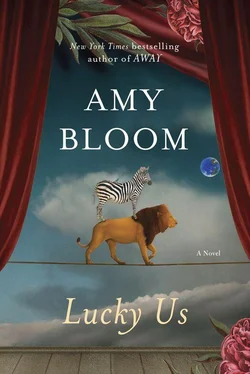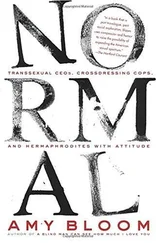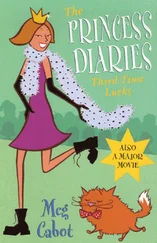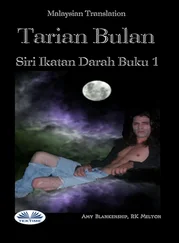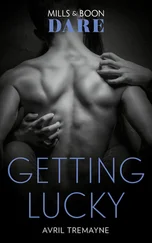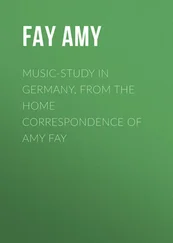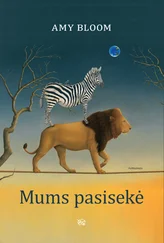On Sunday afternoons, in good weather, she took a drive through the countryside. She’d found a radio station that played oldies and she took one Kool, only one, from her glove compartment, drove with her window rolled down and her elbow on the door, like a cool cat, and when she found the radio station, drove for hours. She missed Edgar and Ozzie, she spoke to them both all the time, although not at the same time, and at bedtime, she pictured their graves beneath a willow tree, with a space for herself in between. When the state trooper came upon her wrecked and twisted car, with not an inch between the guardrail and the steering wheel, she heard his footsteps. He spoke softly and Clara heard him say, Ma’am.
220 Old Tree Lane
Great Neck, New York
The United States of America,
The World,
The Solar System
May 11, 1946
Dear Iris,
I found an envelope with your address on it in Eva’s nightstand. The Torellis wrote FORWARD on it. My teacher Mr. Hoerger says that I am a good reader and a good writer. I am way ahead of most of the other kids in fourth grade reading. I wrote some poems that are sort of like Langston Hughes, except not about the Negro people.
I hope when you go to bed at night, you think about us. I hope you think, Boy, that was pretty bad, what I did. Here are the people who were in my life and now are not: my brother, Bobby. My mother, who died making dinner for you. Clara. Ozzie Patterson. Poppa. You.
Poppa died. I’m sure Evie wrote to you but you didn’t come to the funeral. It was me and Evie and the Diegos and Ozzie and Clara and Mrs. Torelli but not their kids. And Mr. Smedresman, who used to bring the bagels. Knowing Mrs. Torelli, she wanted to show respect but she was scared to have her kids in a synagogue. The rabbi was not like a regular rabbi. I have Jewish friends who go to Temple Beth El. Rabbi Waxman looks like he should be vice president or governor. This rabbi looked like Bugs Bunny. Evie sat down with me before and told me she thought that Poppa was really Jewish. I don’t remember him doing anything Jewish. When we lived at the Torellis’, I used to sit in the Torellis’ back room, off the kitchen, and help Poppa sort the mail. I hardly saw him after he got sick. Mom said he got confused and thought I was his own little brother, who he hadn’t seen in a really long time. And then Mom died in the fire and you left, and Poppa got worse and then — did you hear about this? — Evie and I had to move, with Poppa, because, since he couldn’t be a butler and Mom was dead, the Torellis needed the carriage house for a new butler and cook. Evie said that I’d have my own room, which I do. We never see the Torellis. Cathy, Mary, and Joey go to Catholic school. I don’t miss them. I have a best friend, Ruthie Post. We are the best readers in fourth grade.
After Poppa’s funeral, the Torellis left a big ham for us and we ate ham sandwiches and split-pea-and-ham soup for a week. Jews don’t eat ham.
A lot of nights, before Poppa died, Ozzie and I played catch. Ozzie is a very big man. He was a three-sport captain in his high school. He played football at Alabama State University, which is a good school for football. Ozzie was the one who helped us move Poppa. I sat in the front with Clara and Ozzie and Ozzie’s idiot cousin drove the pickup behind us, with all of our stuff. Mrs. Torelli gave us some old furniture so that when we got to our new house it wasn’t empty. Clara visited us but she didn’t live with us anymore. Ozzie said that growing up in a house of women and a sick old man wasn’t good for me. Sometimes Ozzie threw the baseball right at my head. He said that a boy like me should know when to duck. We worked on my spitball. When it got dark, Clara would come out to get us. She was always dressed up, in her sparkly stole and her dark-blue dress and her silk high heels, so she waited in the driveway — she didn’t come onto the grass. Ozzie and Clara would get in his Oldsmobile and go out for dinner or to the Nite Cap. Ozzie said, Hi-de-ho, and I said that back. Then I’d sit on the steps until Evie made me come in.
I don’t know what you took me from that orphanage for. (Evie told me I wasn’t left on the steps, in a basket, like you said. She said you saw me and you liked my looks and tricked me into coming with you and then you and Mom kept me.) My friend Ruthie Post is a Negro girl, and she says that the Negro people have suffered a lot in America. And Ruthie says that she feels sorry for me.
You don’t have to write back. Evie and I are in a nice house, on Old Tree Lane.
I asked Evie if you were dead. She said that she didn’t think so. She asked me if I wanted to write to you or send you a photograph. I said no, but I did want to write you this one letter.
Danny Lombardo Acton
23 They Can’t Take That Away from Me
CLARA’S LEAVING WAS SO HARD TO BEAR, IT MADE ME SAY AND DO things I was sorry for. On Monday, Danny dropped a bottle of milk and we watched it break and flow to every corner of our little kitchen. She left us flat, Danny said. He kicked the wet glass against the wall. She left us flat as a pancake and never looked back, he said. She never loved us. I slapped him, and shame on me. Danny went to his room. I stared at the milk on the linoleum until it began to set and then I got a sponge and cleaned it up and piled the milky glass in the garbage can. I sat on the picnic table in the back and smoked and thought, and not for the first time, that it was hard to believe that Reenie was dead and my sister had flown the coop and all the rest was going to hell in a handbasket, leaving just me and Danny. Whatever the opposite of miraculous is, that’s the word I was looking for.
If it had been up to Reenie and my sister, Danny’d be back at an orphanage and I’d be in some crap apartment, with a Murphy bed and a bathroom down the hall, trying to forge a college diploma. Sometimes, Danny and I took a walk to the far end of Old Tree Lane, where the nicer houses were. We passed window boxes and stone planters full of geraniums. Danny’s eyes got big and he’d breathe in deeply. Every time, as we’d head back home, Danny’d exhale and say, “This street smells like my mother.” He had dreamed up a version of Reenie, half actual Reenie and some bits and pieces of radio shows and a little Eleanor Roosevelt and his faint memory of a woman leaning over his crib, smelling of geranium powder. He must have been sleeping in a crib until the day we took him. When he got to the carriage house, he fell out of bed four nights in a row and Reenie put pillows all over the floor. Every morning, I’d walk past his room and see him lying on the floor, waiting for Reenie. He made a small waving gesture if I looked in on him, and it meant Hello and Move along.
I DIDN’T ARGUE WITH Danny. When I made him do things he didn’t like, he threw Reenie at me. My mother was beautiful, he said. My mother never made me eat eggs, he said. My mother was the greatest cook in the world. My mother and I were going to move out of that stupid house and far away from you and stupid Iris, he said. My mother sat by my bed until I fell asleep, every night. I agreed with everything he said about Reenie and sometimes I said that I was sorry for both of us, not to have her around. One night, after we’d fought over meat loaf (I won’t eat it, he said. Don’t, I said.) and he’d taken himself to his room and gotten into bed with his clothes and holster on, I sat at the foot of his bed. He made sure that no part of him, even under the covers, was touching me.
You should complain, I said. This is pretty bad. Sometimes, I said, I am so angry and miserable, it makes me want to cry and scream right in people’s faces. It makes me want to kill people. Who? Danny said. Well, considering, I said, I’d like to kill Iris. Danny nodded. I stretched out next to him, but not touching. Before I went back to my own room, I put his toys in tableaux I thought would make him laugh in the morning: Raggedy Andy on the brown pony, his old blue rabbit stuffed into a truck.
Читать дальше
